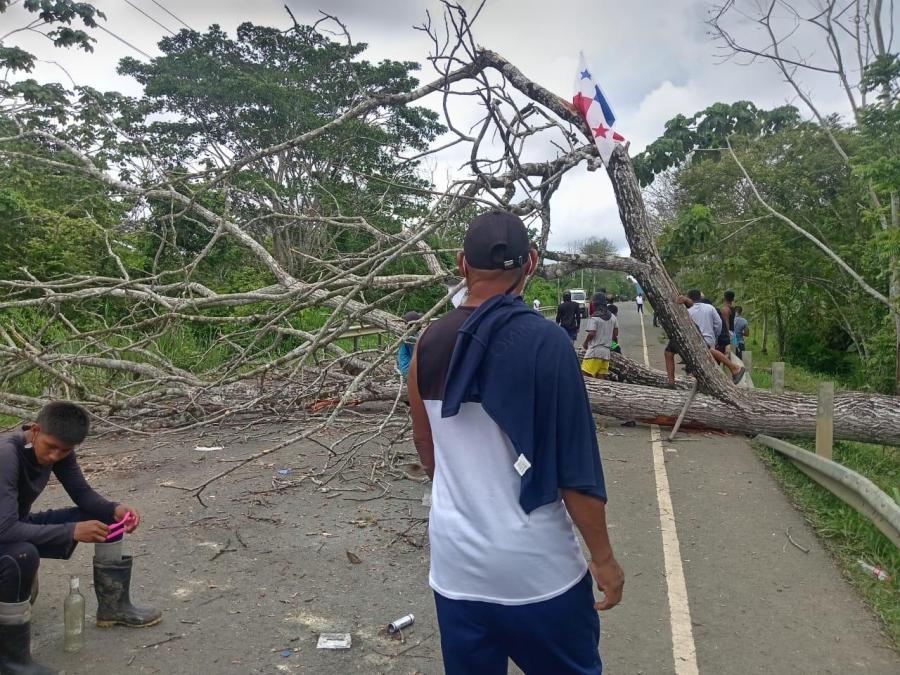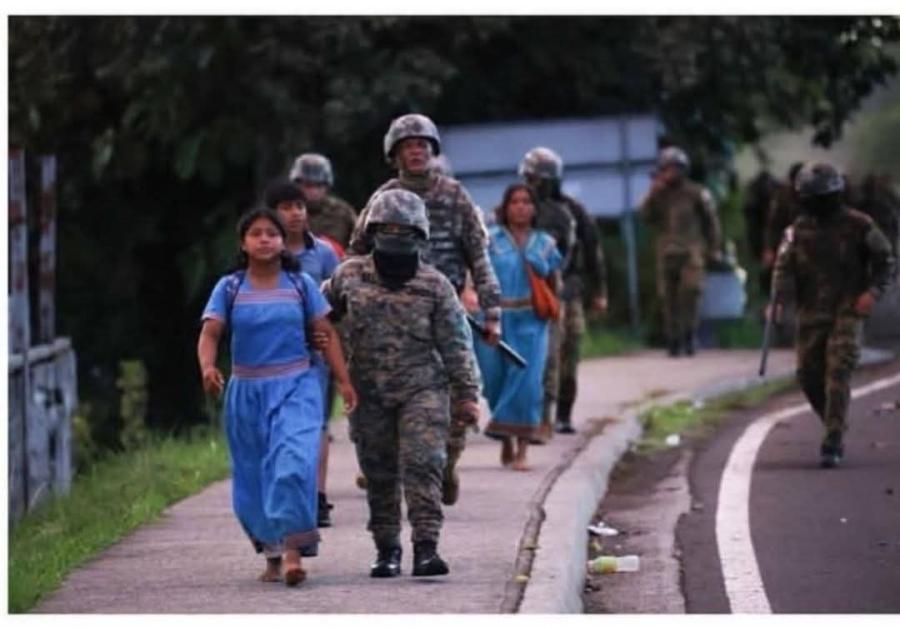In a 17-page brief filed in June, the government of Panama made clear its refusal to heed the Inter-American Commission on Human Rights demand that it suspend all work on the Chan-75 hydroelectric dam that is destroying the homes, territory, and way of life of Panama’s Ngöbe communities living in the Changuinola River valley.
This month, Cultural Survival and its partners responded to the brief, pointing out that from the beginning, the government’s dam construction decision-making process bypassed the Ngöbe whose lands the dam will inundate. Along with dam construction, the government contracted with AES-Changuinola, an affiliate of the US-based engineering giant AES Corporation, to negotiate with the Ngöbe to leave the area before the hydroelectric plan is put into operation.
AES-Changuinola has engaged in a variety of nefarious, culturally inappropriate methods to remove the Ngöbe, including bribery, bullying, intimidation, and threats. It has hired federal police squads to put down protests, prevent interference with construction, and blockade the area, thereby making it extremely difficult for the Ngöbe, who have no access to electricity, telephone or cell phone service, or the Internet within their communities, to communicate with outside supporters. The most recent police action occurred in the village of Charco la Pava over the July 4th weekend, when federal police conducted an unexplained and highly intimidating house-to-house search. These actions have divided communities from one another, created divisions within communities, and even caused the breakup of families.
From all appearances, the government and AES-Changuinola are engaged in a deliberate strategy to break down the cultural and communitarian cohesiveness of the Ngöbe communities. The cumulative result is a repetition of what has happened to Native Peoples throughout the world over centuries when Indigenous Peoples’ interests come into conflict with the resource-exploitation ambitions of governments. Indigenous Peoples are forcibly relegated to marginal existences on the fringe of the larger society where they can neither retain their cultures nor ignore them as core to their identities. The social consequences of such marginalization are equally well-known, and include poverty, alcoholism, domestic abuse, disease, despair, and often high rates of suicide.
Cultural Survival and its partners have called on the Inter-American Commission to immediately submit Panama’s refusal to halt dam construction to the Inter-American Court of Human Rights, which has the power to issue a court order demanding that Panama desist. We also have asked the commission to visit the affected communities to see for itself the devastation that dam construction is causing. The Ngöbe communities made clear in a declaration submitted along with our brief that they are prepared to negotiate with the government and the company, provided that the negotiations are fair and conducted in good faith, that all construction ceases first, and that the rights of the Ngöbe people are respected. For the moment, all three of these demands seem like pipedreams.


